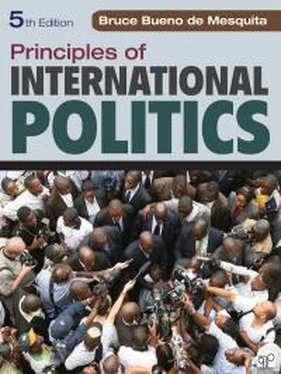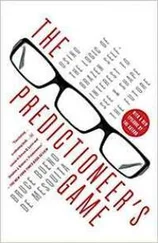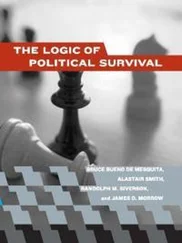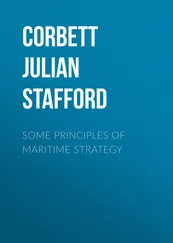My parents, Abraham and Clara Bueno de Mesquita, survived Hitler; fled their homelands; and spent fruitful, successful, and rewarding lives in demanding times. They ensured that my sisters, Mireille Bany and Judy Berton, and I had every opportunity for fulfillment. Their lessons and their aspirations inspire me still. Every day I hear their wisdom as whispers on the wind.
Teachers leave incredible marks on our lives. I wish to express my gratitude to my most important classroom teachers, too many of whom are no longer with us: Henry Morton (Queens College), Richard Park (University of Michigan), Solomon Resnik (Queens College), Donald Stokes (University of Michigan), Phyllis Taylor (third grade), Lionel M. Yard (Stuyvesant High School), and many others inspired me to want to teach. To touch the lives of students as they have done is one of life’s remarkable accomplishments.
I have benefited from the counsel of many colleagues who, of course, cannot be held accountable for my failure to heed all of their advice. Certainly the advice I did take has improved my effort in shaping this fifth edition. While I cannot mention everyone who counseled me through the original development and subsequent revisions of Principles of International Politics, I especially want to thank D. Scott Bennett, William Clark, Youssef Cohen, Mark Crescenzi, Andrew Enterline, Alejandro Quiroz Flores, Erik Gartzke, Anna Getmansky, the greatly missed Robert Jackman, David Leblang, Douglas Lemke, Rose McDermott, the much-missed Fiona McGillivray, Cliff Morgan, James Morrow, Glenn Palmer, Alexander Rosenberg, Shanker Satyanath, Randolph Siverson, Kiron Skinner, Alastair Smith, Detlef Sprinz, Allan Stam, Douglas Van Belle, and the anonymous reviewers, all of whom provided especially insightful and useful guidance. Their comments inspired many of the changes you see here. Additionally, Ethan Bueno de Mesquita provided invaluable assistance in the development of the fifth edition’s treatment of terrorism. Some among those who gave generously of their time and counsel have been students of mine; I have been the student of all of them. Although they are too numerous to name, I thank all of my students, who, over the years, have suffered through my efforts to identify and explain the principles of international politics as I see them.
CQ Press has been an author’s dream publisher. Randolph Siverson first suggested this project to Brenda Carter, director of CQ’s college group. I thank him for doing so. Brenda persuaded me that CQ was the right way to go, and I have never regretted the decision. I told her at the outset that I hoped to write a text with a point of view and that I was more interested in making my viewpoint clear than in writing a “garden variety” text. She and the rest of the CQ Press team never wavered from their commitment to that vision. My editor for the first edition, Charisse Kiino, did absolutely everything right to make the original book turn out as well as possible and much better than I could have done on my own. She has continued to be a source of inspired support. This edition has been overseen by Elise Frasier, who is a delight to work with and who brings her keen ideas and insights to every aspect of the book. I am also extremely grateful to Nancy Loh, who was instrumental in photo selection and general design issues; Laura Barrett, who took on production responsibilities as the production editor; and Megan Markanich, who copyedited the manuscript, significantly improved its clarity and accuracy, and saved me from embarrassing errors. This superb team has provided inspired ideas for conveying information and concepts through maps and figures; they have helped me to tighten arguments, write more clearly and succinctly, clarify ideas, and ensure internal logical consistency across the volume. They are second to none in the quality of their advice, editing, creative insight, and in the tremendous charm and good humor that they have brought to this project. I cannot imagine working with better people. Wow, what a team! I thank you all.
Both the Wilf Family Department of Politics and the Alexander Hamilton Center for Political Economy at New York University provide me with all the support one could hope for when researching and writing a book. I thank New York University in all its facets for its continued support and encouragement.
My final and greatest debt belongs to my family, who has been a constant source of support and patience. My wife, Arlene, sacrificed many a beautiful weekend or evening out to make it possible for me to complete this project on schedule, and still, we always managed to make it to the opera on time. I cannot sing her praises sufficiently. She makes everything work out successfully! I am most grateful not only to Arlene but also to Erin, Jason, Ethan, Rebecca, Gwen, Adam and my grandchildren Nathan, Clara, Abraham, Hannah, and Izzy for making life fulfilling.
PUBLISHER’S ACKNOWLEDGMENTS
CQ Press would like to thank the following reviewers:
Renato Corbetta, University of Alabama at Birmingham;
Tobias Hofmann, College of William and Mary;
Moonhawk Kim, University of Colorado;
Douglas Lemke, Pennsylvania State University;
Michael Lerma, Northern Arizona University;
Rose McDermott, Brown University;
Layna Mosley, UNC Chapel Hill;
Amanda Murdie, University of Missouri;
Stephen Quackenbush, University of Missouri;
Mark Souva, Florida State University;
Allan Stam, University of Michigan;
Bannseng Tan, CUNY-Hunter College; and
Laron Williams, University of Missouri.
About the Author
Bruce Bueno de Mesquita is the Julius Silver Professor of Politics and director of the Alexander Hamilton Center for Political Economy at New York University and a senior fellow at the Hoover Institution at Stanford University. He specializes in the study of international conflict, foreign policy formation, the peace process, nation building, the political economy of dictatorship and democracy, and policy forecasting. Bueno de Mesquita, who has appeared on Comedy Central’s The Daily Show and The Colbert Report, also has been a guest on Fareed Zakariah’s GPS on CNN and has been on all of the major television networks as well as National Public Radio and other major media outlets. He is the author or coauthor of nearly 140 scholarly articles and seventeen books, including The Dictator’s Handbook (with Alastair Smith; Public Affairs Press 2011), The Predictioneer’s Game (Random House 2009); The Strategy of Campaigning (with Kiron Skinner, Serhiy Kudelia, and Condoleezza Rice; University of Michigan Press 2007); The Logic of Political Survival (with Alastair Smith, Randolph M. Siverson, and James D. Morrow; MIT Press 2003); War and Reason (with David Lalman, Yale University Press 1992); The War Trap (Yale University Press 1981); and one novel. He has also been the subject of feature stories in the Sunday magazine section of the New York Times , the Economist, the Wall Street Journal, US News and World Reports, London’s newspapers the Independent and the Financial Times, as well as Good Magazine, Computer World, and a two-hour documentary about his forecasting broadcast on the History Channel.
Bueno de Mesquita is counted by Foreign Policy Magazine as one of the top 100 global thinkers. In 2007, he won the DMZ Peace Prize for contributing to the advancement of peace on the Korean Peninsula. He has received numerous other professional awards and is a former Guggenheim Fellow, recipient of the Karl Deutsch Award, and a member of the American Academy of Arts and Sciences and the Council on Foreign Relations. He was president of the International Studies Association in 2001 and 2002. Bueno de Mesquita is also extremely proud of being the recipient of New York University’s Golden Dozen Award given annually to its top dozen teachers.
Читать дальше












